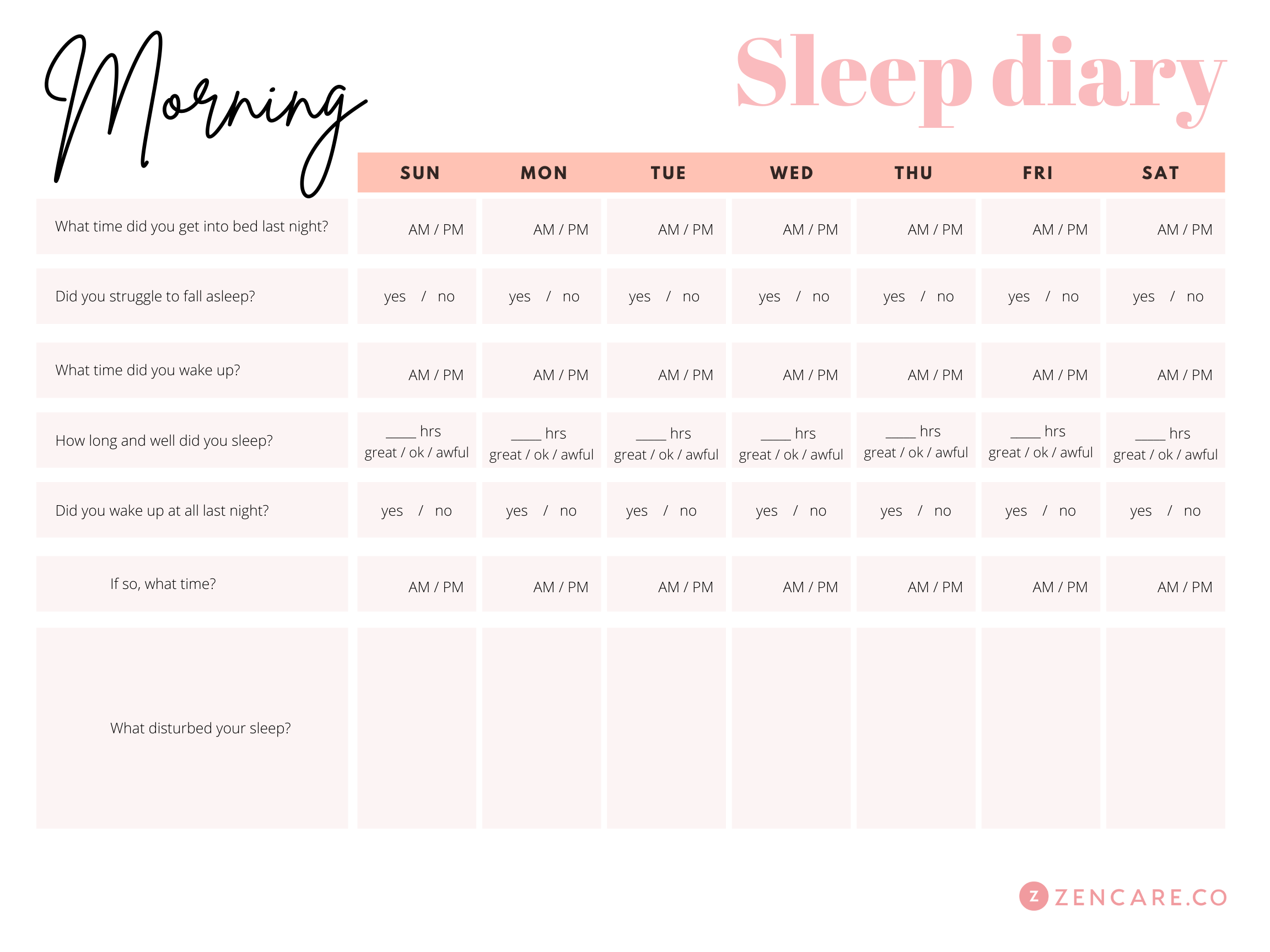During these unprecedented times, when our routines and schedules have been completely disrupted, even more people are reporting sleep disturbances. Many of us are working and sleeping in the same space, making it difficult to establish healthy sleep routines. In fact, one in four Americans develops insomnia each year.
Insomnia is a sleep-wake disorder that is characterized by difficulty falling asleep, staying asleep, and waking frequently. People who suffer from insomnia and other sleep disorders often feel dissatisfied with their quality of sleep, which in turn impacts how they function cognitively. Many people with insomnia will notice negative changes in their work/school performances and abilities to be social and active.
A sleep diary is a simple tool that helps you take a look at your sleep patterns, identify any poor sleeping habits, and start getting on the track to better rest.

What is a sleep diary?
A sleep diary is a tool used to track sleep patterns in order to improve sleep hygiene. They can be used by clinicians to diagnose sleep disorders or by individuals to build awareness around sleep patterns and establish healthier routines.
What should I track in my sleep diary?
- The time you went to bed and woke up
- How long and well you slept
- When you were awake during the night
- What disturbed your sleep
- How much caffeine or alcohol you consumed and at what times
- What/when you ate and drank
- What emotion or stress you experienced
- What drugs or medications you took
- Amount of screentime you had
- Amount of physical activity you did
What issues can a sleep diary help me with?
A sleep diary can be helpful when working with or looking at any of the following issues:
Practicing good sleep hygiene
A sleep diary can alert you of poor sleep hygiene practices, which can impact your rest (and wakefulness!) negatively. Here are some ways to practice better sleep hygiene:
- Set a fixed wake-up time. Whether it’s a weekday or a weekend, wake up and go to bed at the same time to establish a consistent sleep schedule.
- Prioritize sleep. Don’t skip out on sleep to study, work, socialize, or exercise. Treat sleep as a priority: it’s just as important as any other activity.
- Make gradual adjustments. If you need to shift your sleep schedule, don’t make drastic, immediate changes. Instead, make gradual adjustments by an hour or two at a time.
- Don’t oversleep during naps. Naps can help you recharge and regain energy, but they can also throw off your nighttime sleep schedule. Keep naps short and no later than early afternoon.
- Keep a consistent nighttime routine. Follow the same steps to get ready for bed each night.
- Make time to wind down. Budget 30 minutes prior to bedtime to read, play soft music, stretch, or meditate in a dimly lit area. Bright lights hinder the production of melatonin, which regulates the sleep-wake cycle.
- Unplug from electronics. Your wind-down time should be device-free. Blue light also hinders the production of melatonin.
- Don’t toss and turn. It helps to have a healthy mental connection between being in bed and actually being asleep. For that reason, if after 20 minutes you haven’t gotten to sleep, get up and stretch, read, or do something else calming in low light before trying to fall asleep again.
- Cultivate healthy daytime habits. Get adequate exposure to sunlight, be physically active, cut down on caffeine late in the day, reduce alcohol and nicotine consumption, don’t dine late, and restrict in-bed activity.
- Create a tranquil sleep environment. Sleep on comfortable bedding, set the temperature on the cooler side, block out light and noise, and use calming scents such as lavender.
Considering seeking support from a therapist
Using a sleep diary is a helpful tool in identifying poor sleep hygiene practices; however, sleep disorders often require treatment with sleep studies, medication, and therapy. If you are experiencing a sleep disorder or sleep disturbance related to a mental health condition, consider seeking support from a therapy who specializes in Cognitive Behavioral Therapy-Insomnia.
